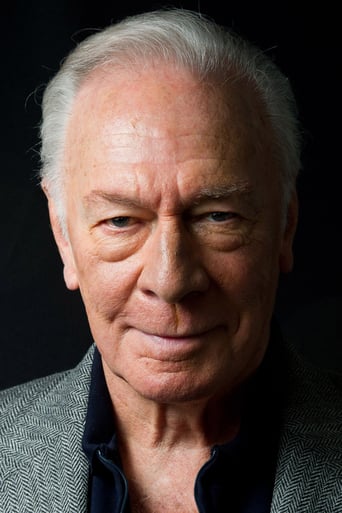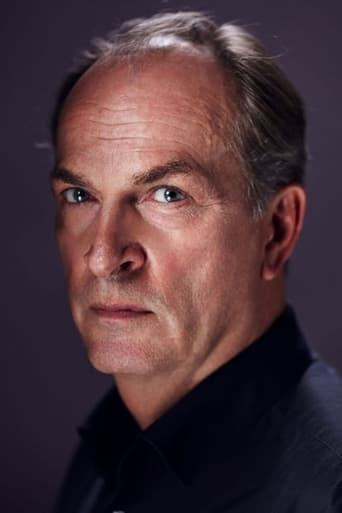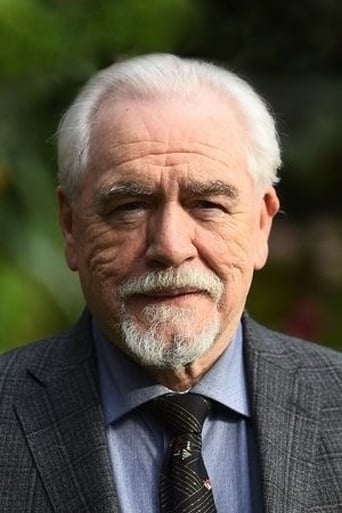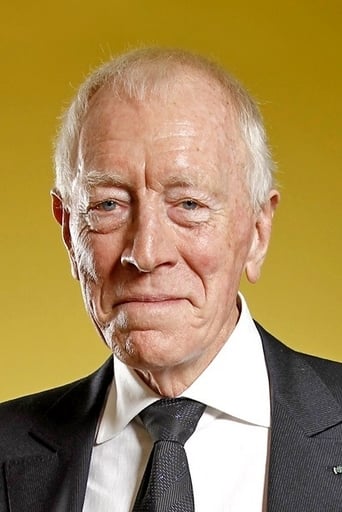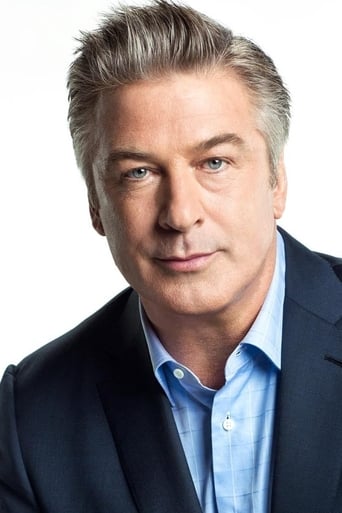Laikals
The greatest movie ever made..!
RyothChatty
ridiculous rating
Konterr
Brilliant and touching
Myron Clemons
A film of deceptively outspoken contemporary relevance, this is cinema at its most alert, alarming and alive.
Luveh Keraph
Quite a few reviewers seem to be taken by the historicity of this movie. It's true that many of the details are correct - but it is also true that many others are wildly incorrect. The most egregious one is the romantic liaison between Justice Jackson and his assistant. I guess that the producers introduced the romantic element for the sake of a wider appeal, but the fact is that, in light of the actual events, this looks ridiculous. Which is a shame, for the movie would have been far more valuable without that silliness. It's mostly because of this that I don't think that it deserves more than 5 points. The bright sides are Brian Cox's and Michael Ironside's performances, and also, but to a lesser extent, Christopher Plummer's and Matt Craven's. Alec Baldwin delivers the same kind of underwhelming performance that he usually does, and Jill Hennessy does whatever she can with her inane and fictitious part.In summary, it could have been a good movie, but it is just a decent one.
lufts
Writing in 2014 and having the benefit of reading all of the other reviews, as well as being a student of both the war, and the trials, I'm somewhat fascinated by how much others seem to miss about the actual trials, the war, and the film. First, considering the length of the the FIRST part of the Nuremburg trials (which went on long after this first portion, led mostly by General Telford Taylor who would go on to teach law at Columbia Law School, and whose magnum opus "Munich: The Price of Peace" is considered the standard bearer for history of that precursor to the war), condensing it into a 3 hour miniseries, the producers did a nice job, particularly in Brian Cox's portrayal of Herman Goerring.However, what is missed is that part of Goerring arrogance during his direct examination, had to do with his slow, and painful recovery from both his morphine addiction, and his gross obesity.By the end of the war, as mentioned by Goerring's wife in the film, the former Reichmarshall, had been stripped of his title and in fact, an SS squad had been sent to kill him.Goerring had become a bumbling, bloated drug addict, incapable of performing almost any function.And to Colonel Andrus credit, he made sure that Goerring got healthy before the trial.Yet, it was just that, and Goerring's return to the former WWI flying ace status (Goerring replaced the Red Baron as Germany's greatest combat pilot during that war) that helped lead to his confrontation with Jackson.As has been mentioned here, despite Alec Baldwin needing to "redeem" Jackson, in fact, there was really no redemption.The transcripts of the trial are available to all, and Jackson's examination of Goerring was an unmitigated disaster, prosecutorially.It was only Maxwell-Fyfe's brilliant cross that saved the day and it is a legal moment still studied by prosecutors to this day.The so called affair between Jackson and the Jill Hennesy character is also silly.As a final point, the unquestioned view of Albert Speer as remorseful is questionable at best.One gets the impression from his "Inside the Third Reich" that it is likely that Speer was simply looking out for himself, and, having served his sentence, left Spandau and became a successful raconteur.However, Speer was arguably the most important man in the Reich by the end of the war, and in fact, had made the Reich and the war effort even more efficient at the end, than the beginning. He was a long term member of the Nazi party (from 1931), and being in charge of everything in Germany, including the trains, which he claimed at the trial to not know were being used to transport death camp victims, his claim of not knowing rang very hollow.The "conflict" between Speer and Goerring was also overplayed. Speer looked at Goerring still as the corpulent drug addict, while he was the regal Nazi. Tall, good looking and oh so efficient.As for trying to kill Hitler, Speer himself said that he never actually meant to, and it was merely puffery.
Elia Ansaloni
I watched "Nuremberg" on Italian TV, where it passed as a one-evening movie instead than a miniseries, so it was cut in order to fit into the timetable. Despite this, it still proved to be good and with a valid cast. It's not easy to bring the enormity of Nuremberg Process into a movie or a series, yet here we have a good example of an history-related production.The scenes are built with attention to details, the narration doesn't become pedant and the screenplay avoid most of the clichés about WW2. Alec Baldwin gives a good work in portraying Robert Jackson in a war fought mainly against Reichsmarschall Hermann Goering, wonderfully portrayed by Brian Cox. His charismatic, manipulatory character is the best developed of the series and easily casts a shadow over the other defendants, whose similarity to the real defendants is sometimes astonishing.There are, however, some flaws that need to be pointed out. First of all, Rudolf Hess's characters scarcely has a line to speak, and the same happens to Alfred Rosenberg. Probably it was due to the fact the two actors who portrayed them (LaFortune and Fournier) are French and their accent wouldn't have been fit to the characters, but their impact is still scarce. It would have been interesting to watch scenes about Hess's pretended mental illness or Rosenberg's intellectual arrogance and insignificance finally unmasked. Other defendants are better represented, however: the toffee-nosed Ribbentrop, the cruel Kaltenbrunner, the Admiral... ops, Feldmarschall Keitel, the (probably) guilt-ridden Frank, the coarse Streicher and Funk, and the repented enslaver Speer (even if the overall tone is a bit too indulgent towards the last one).Another insipid part is the soap between Jackson and his secretary/mistress. Fortunately, some scenes were cut in the Italian edition, so I missed them (reading the others' review, it was probably a great deal).In the end, "Nuremberg" is an above average TV production with good sequences and characterization. It handles a controversial historical event professionally and carefully. Cutting away some soapy parts, it wouldn't be bad even as a school projection.*** out of 4 stars
Clive-Silas
Hidden inside this purported battle between surviving top Nazi Hermann Goering and American prosecutor Judge Robert Jackson is, I think, the adaptation the writer probably wanted to do - the story of psychologist E.M. Gilbert and his backstage verbal tusslings with men who either refused to acknowledge any guilt (Goering, Streicher) or conversely were overflowing with it (Frank, Speer).When you see Alec Baldwin appear a second time in the credits, as Executive Producer, you feel that Nuremberg was probably conceived as a vanity project for him. Fortunately it is quite easy to let the early scenes of the Court's setup just wash over you, and of course Jill Hennessey is always easy on the eyes. Much of the first half of the first episode is more or less soap opera. Jackson has to persuade Judge Biddle to go to Nuremberg, then to relinquish the Presidency of the court to the British. The bantering relationship with his secretary (Hennessey) serves as a prelude to their becoming lovers during their time in Germany.At this point Hermann Goering appears (the great Brian Cox on top form), totally dominating the trial, totally dominating this mini-series, and your attention is grasped and held. Cox almost wipes Baldwin off the screen. Unfortunately it's very hard not to gain a great deal of sympathy for Goering, particularly when he is with his family, or in the heart-to-heart chats with his G.I. prison guard, Tex. We see Goering as he undoubtedly saw himself, but in reality he wasn't like that at all. The Nuremberg trial and the general travails of imprisonment were an excellent opportunity for him to smarten himself up: prior to his arrest he had become a dissolute and overweight drug addict. Unfortunately no sign of this weakness of character was carried over into the script, leaving an impression of Goering as a noble, principled man - irrespective of whether you agreed with his principles.Also very watchable was Matt Craven in the role of Gilbert the aforementioned psychologist, and Christopher Plummer as British prosecutor David Maxwell-Fyfe (although the real Maxwell-Fyfe was the younger prosecutor, not an elder mentor as depicted here). Particularly gratifying is the scene in which Maxwell-Fyfe tells Jackson that "your documentary approach is legally impeccable - but as drama it's absolutely stultifying" - which might stand as an apt description of Baldwin's part in this series.A last little curiosity, and not to make any personal remarks about Herbert Knaup, but I did find it strange that they cast Knaup, a slightly odd-looking actor, to play Albert Speer, by fairly common consent the handsomest and most photogenic of all the Nazi leaders, particularly as Speer was portrayed here in a sympathetic light. Other than Knaup, many of the actors were very close in looks to their real-life counterparts, most notably Roc LaFortune as Rudolf Hess, almost a living double.



